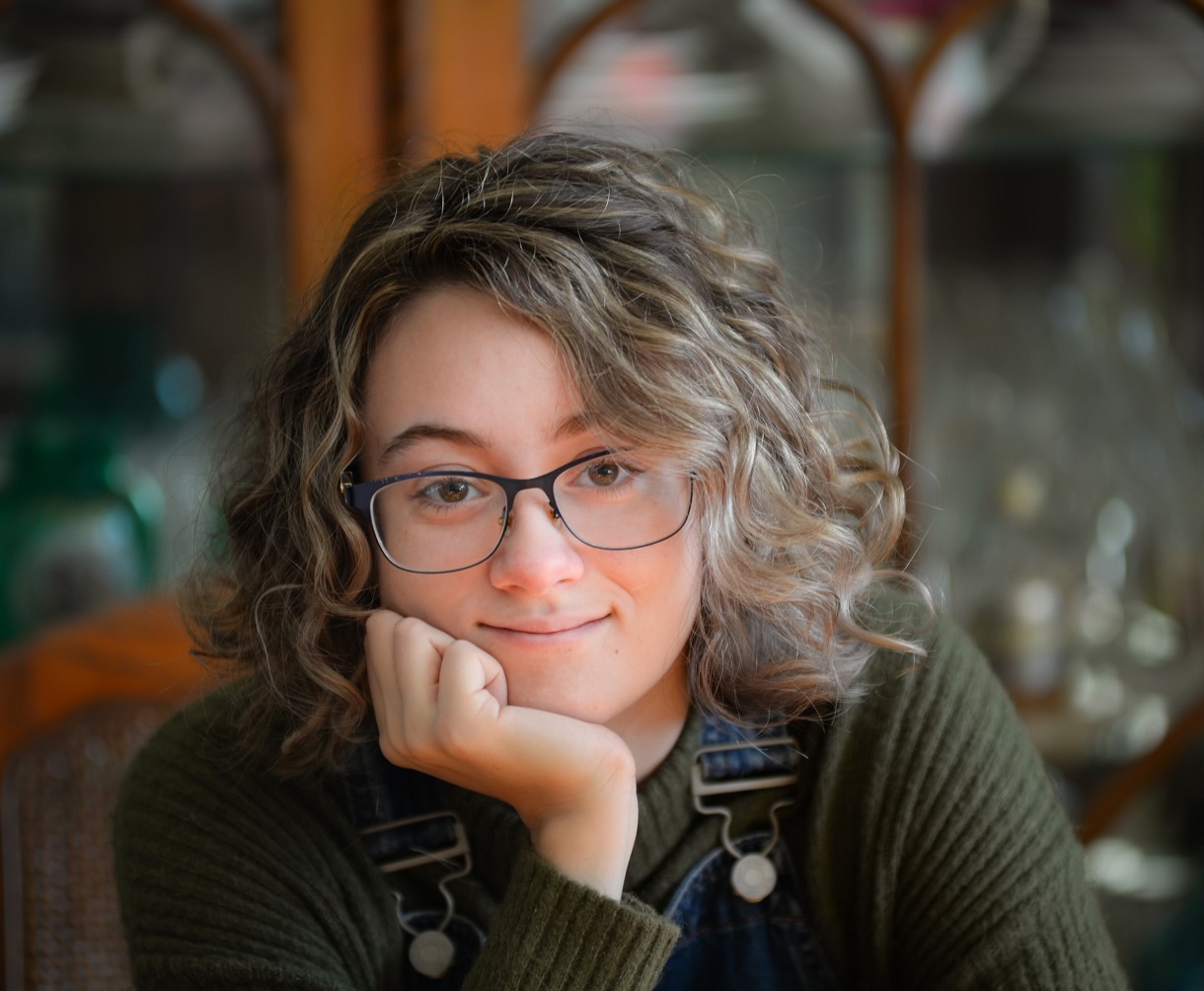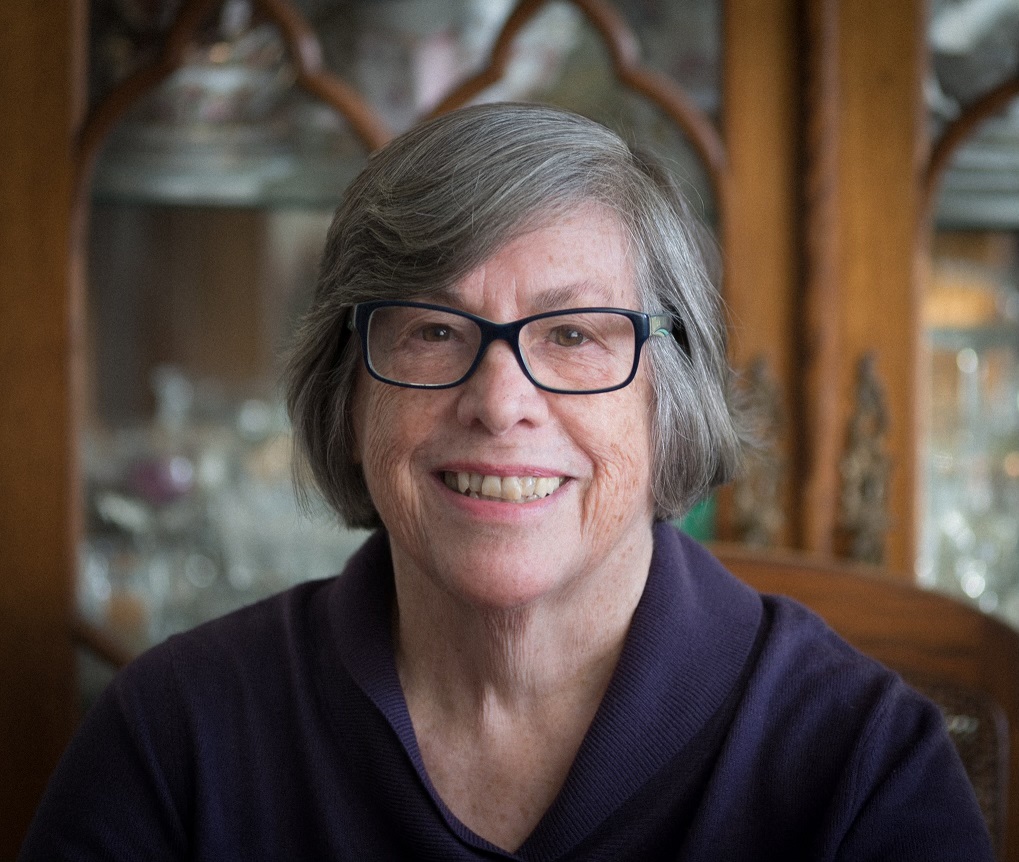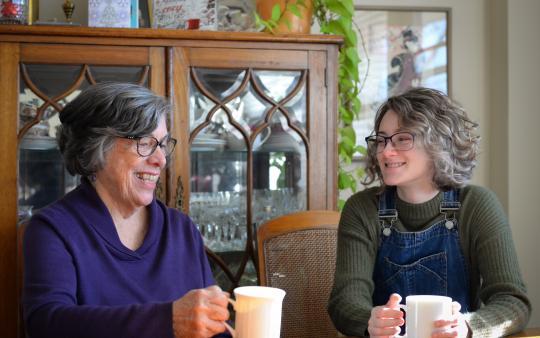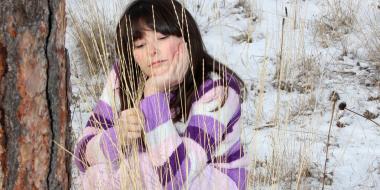Article co-authored with Andrew Jackson.
Have you ever tried to talk about climate change with your family? I don’t know about you, but that’s the last topic I would reach for at the dinner table.
Millennials (like myself) are often dubbed as the generation that cares the most about climate change and the environment, which makes a lot of sense. We are the first age group to witness the effects of climate change in real time, while simultaneously being given a glimpse of our climate-precarious futures.
So, how could my parents or grandparents ever understand my climate-induced frustration and anxieties?
No education, no dialogue
Our differing experiences can lead to a lack of communication, and even greater disparity.
Age gaps are not the only disparity costing the environment. Gender inequality around the world can mean a lack of access to education for women, which means the environment suffers. Women’s empowerment has a proven link to better environmental outcomes, including more protected land areas, stricter climate change policies, and lower carbon footprints. Providing girls with an education is proven to act against climate change.
I have seen in my own life that a lack of education and empowerment leads to more uncertainty and less confidence, making it easier to avoid voicing our fears and opinions.
In time, this ends up preventing the possibility of opening up dialogue. As climate scientist Katherine Hayhoe says, talking about climate change with your peers is actually one of the most impactful things you can do to drive positive, lasting change. In a nutshell, talking leads to more talking (and that's a good thing).
This was the thought process behind the creation of Talk Climate to Me (TCTM), a course designed for women in Canada who want to talk with their friends and family about their climate concerns and questions, but simply don't know where to start.

One of these women was Mariana Higgins, an undergraduate student from McMaster University (and a driving force behind TCTM), who decided to invite her grandmother, Mary Mills, to take the course with her.
Mariana’s grandmother, Mary, is her eco-hero. “For as long as I can remember, it's been Earth Day week, turn the lights off, clean the streets, and spread awareness for pollution and climate action,” Mariana said. “I knew Nana would love TCTM.”
But, before TCTM, both Mariana and Mary admitted they didn’t really know much about climate change. “I can't remember a course that had a climate change component. I took cultural geography in grade twelve, but even in that class I don't think we talked about climate change stuff,” Mariana admitted.
“I think it's ignored," Mary remarked. "It's never in our newspapers, never in our media, at least here in Hamilton. They talk a lot about climate, but they don't talk about practicality. I know what I've read. I know what is happening in other countries.”
Mary continued, “TCTM really inspired me because of the number of young people involved, I was so happy to see that. It was so nice to see people interested - and of all ages!”
Often, when the people around you—whether it be your peers, politicians, or media figures—aren't talking about climate change, one can be left feeling embarrassed for even trying to bring it up. In this environment, how can we talk about climate when it feels like no one else is?
Power in numbers
This is where Mary’s experience as a part of TCTM is so refreshing. She found it nice to see people of all ages getting involved in this experience, and she was glad to join them. Talk Climate to Me consists of four episodes and after each episode, participants break off into virtual “breakout rooms” to discuss climate issues together. These discussions gave participants, including Mariana and Mary, a chance to talk with people from different backgrounds, generations, and experiences, and gave them an opportunity to start these discussions in a safe environment.
"After the first episode," recalls Mary, "when we broke into groups, I left. I felt I had nothing to say, I felt really shy, maybe because everyone was so young. I felt like, ‘Oh, no one wants to hear what I have to say.' I really felt silly. Isn't that ridiculous?”

Mariana noted that individuals in her own age group also hold their own reasons and rationales for avoiding climate conversations.
“I think for the university student demographic in particular, there is this feeling of not having any free time,” she said. “I also think for young people (those who will be impacted the most by climate change), I think sometimes it can just be so overwhelming and climate anxiety can be so big that it’s hard to imagine yourself overcoming that.”
Since taking TCTM in the fall of 2021, Mariana and Mary are finding it easier to talk about climate, and are learning, together, about environmentally-positive actions that they can take.
“Now every time one of us reads something about climate change in the news, we immediately pull out our phones. It's like, ‘You'll never guess what I heard!’” said Mariana.
Positive personal changes
Mariana even helped Mary discover her own carbon footprint.
“I had no idea what my personal [carbon] footprint was, and I have found all of that extremely new and interesting for me. I think if older people know their footprint, they actually might do something,” said Mary.
To lower their carbon footprints, Mary and Mariana have now started riding the bus together and are in the process of planning eco-friendly holidays.
Talking about climate doesn’t have to suck. As women, we often have preconceived notions that people don't want to hear what we have to say. Are we too old? Too young? Not informed enough? Too opinionated? But some of the best climate conversations might happen in the place you’d least expect—like at the dinner table with grandma.
Talk Climate to Me is funded in part by the Government of Canada. You can learn more about Talk Climate to Me on their website: www.talkclimatetome.ca.
You may also enjoy: Raising Kind Children Through Environmental Sustainability, Supporting Your Child's Environmental Activism, and How to Teach Children to Care About the Environment.






